-
 Univers
Univers
-
 Ebooks
Ebooks
-
 Livres audio
Livres audio
-
 Presse
Presse
-
 Podcasts
Podcasts
-
 BD
BD
-
 Documents
Documents
-
- Cours
- Révisions
- Ressources pédagogiques
- Sciences de l’éducation
- Manuels scolaires
- Langues
- Travaux de classe
- Annales de BEP
- Etudes supérieures
- Maternelle et primaire
- Fiches de lecture
- Orientation scolaire
- Méthodologie
- Corrigés de devoir
- Annales d’examens et concours
- Annales du bac
- Annales du brevet
- Rapports de stage
La lecture à portée de main
Sara Crewe , livre ebook
26
pages
English
Ebooks
2021
Écrit par
Frances Hodgson Burnett
Publié par
Mint Editions
Vous pourrez modifier la taille du texte de cet ouvrage
Obtenez un accès à la bibliothèque pour le consulter en ligne En savoir plus
Découvre YouScribe en t'inscrivant gratuitement
Découvre YouScribe en t'inscrivant gratuitement
26
pages
English
Ebook
2021
Vous pourrez modifier la taille du texte de cet ouvrage
Obtenez un accès à la bibliothèque pour le consulter en ligne En savoir plus
Publié par
Date de parution
07 mai 2021
Nombre de lectures
2
EAN13
9781513275352
Langue
English
Poids de l'ouvrage
3 Mo
Prior to the publication of A Little Princess, Francis Burnett’s classic tale appeared in a serialized novella called Sara Crewe, or What Happened at Miss Minchin’s. It’s the brilliant heartwarming story of a young girl who’s driven by love, compassion and an unwavering resilience that leads to an unexpected truth.Sara Crewe, or What Happened at Miss Minchin’s centers on an orphan girl living in a London seminary led by a cruel and neglectful leader.Despite the circumstances, the child uses her vivid imagination to escape her harsh reality. Originally published in St. Nicholas Magazine, Sara Crewe, or What Happened at Miss Minchin’s is the foundation for one of Burnett’s most famous novels, A Little Princess. The story follows Sara, the daughter of a wealthy military captain, who suddenly loses both her father and family fortune. While attending Miss Minchin’s Seminary for Young Ladies, Sara is subjected to neglect and unimaginable cruelty but maintains her hope, dignity and compassionate spirit. For more than a hundred years, the surprising story of Sara Crewe has inspired countless children across the world. It’s an enduring tale of perseverance in the face of unsurmountable odds. She’s an admirable character who illustrates strength and empathy in the midst of hardship.
Publié par
Date de parution
07 mai 2021
Nombre de lectures
2
EAN13
9781513275352
Langue
English
Poids de l'ouvrage
3 Mo
Sara Crewe
or What Happened at Miss Minchin’s
Frances Hodgson Burnett
Sara Crewe was first published in 1888.
This edition published by Mint Editions 2021.
ISBN 9781513270357 | E-ISBN 9781513275352
Published by Mint Editions®
minteditionbooks.com
Publishing Director: Jennifer Newens
Design & Production: Rachel Lopez Metzger
Typesetting: Westchester Publishing Services
C ONTENTS Begin Reading
I n the first place, Miss Minchin lived in London. Her home was a large, dull, tall one, in a large, dull square, where all the houses were alike, and all the sparrows were alike, and where all the door-knockers made the same heavy sound, and on still days—and nearly all the days were still—seemed to resound through the entire row in which the knock was knocked. On Miss Minchin’s door there was a brass plate. On the brass plate there was inscribed in black letters,
M ISS M INCHIN ’ S
S ELECT S EMINARY FOR Y OUNG L ADIES
Little Sara Crewe never went in or out of the house without reading that door-plate and reflecting upon it. By the time she was twelve, she had decided that all her trouble arose because, in the first place, she was not “Select,” and in the second she was not a “Young Lady.” When she was eight years old, she had been brought to Miss Minchin as a pupil, and left with her. Her papa had brought her all the way from India. Her mamma had died when she was a baby, and her papa had kept her with him as long as he could. And then, finding the hot climate was making her very delicate, he had brought her to England and left her with Miss Minchin, to be part of the Select Seminary for Young Ladies. Sara, who had always been a sharp little child, who remembered things, recollected hearing him say that he had not a relative in the world whom he knew of, and so he was obliged to place her at a boarding-school, and he had heard Miss Minchin’s establishment spoken of very highly. The same day, he took Sara out and bought her a great many beautiful clothes—clothes so grand and rich that only a very young and inexperienced man would have bought them for a mite of a child who was to be brought up in a boarding-school. But the fact was that he was a rash, innocent young man, and very sad at the thought of parting with his little girl, who was all he had left to remind him of her beautiful mother, whom he had dearly loved. And he wished her to have everything the most fortunate little girl could have; and so, when the polite saleswomen in the shops said, “Here is our very latest thing in hats, the plumes are exactly the same as those we sold to Lady Diana Sinclair yesterday,” he immediately bought what was offered to him, and paid whatever was asked. The consequence was that Sara had a most extraordinary wardrobe. Her dresses were silk and velvet and India cashmere, her hats and bonnets were covered with bows and plumes, her small undergarments were adorned with real lace, and she returned in the cab to Miss Minchin’s with a doll almost as large as herself, dressed quite as grandly as herself, too.
Then her papa gave Miss Minchin some money and went away, and for several days Sara would neither touch the doll, nor her breakfast, nor her dinner, nor her tea, and would do nothing but crouch in a small corner by the window and cry. She cried so much, indeed, that she made herself ill. She was a queer little child, with old-fashioned ways and strong feelings, and she had adored her papa, and could not be made to think that India and an interesting bungalow were not better for her than London and Miss Minchin’s Select Seminary. The instant she had entered the house, she had begun promptly to hate Miss Minchin, and to think little of Miss Amelia Minchin, who was smooth and dumpy, and lisped, and was evidently afraid of her older sister. Miss Minchin was tall, and had large, cold, fishy eyes, and large, cold hands, which seemed fishy, too, because they were damp and made chills run down Sara’s back when they touched her, as Miss Minchin pushed her hair off her forehead and said:
“A most beautiful and promising little girl, Captain Crewe. She will be a favorite pupil; quite a favorite pupil, I see.”
For the first year she was a favorite pupil; at least she was indulged a great deal more than was good for her. And when the Select Seminary went walking, two by two, she was always decked out in her grandest clothes, and led by the hand at the head of the genteel procession, by Miss Minchin herself. And when the parents of any of the pupils came, she was always dressed and called into the parlor with her doll; and she used to hear Miss Minchin say that her father was a distinguished Indian officer, and she would be heiress to a great fortune. That her father had inherited a great deal of money, Sara had heard before; and also that some day it would be hers, and that he would not remain long in the army, but would come to live in London. And every time a letter came, she hoped it would say he was coming, and they were to live together again.
But about the middle of the third year a letter came bringing very different news. Because he was not a business man himself, her papa had given his affairs into the hands of a friend he trusted. The friend had deceived and robbed him. All the money was gone, no one knew exactly where, and the shock was so great to the poor, rash young officer, that, being attacked by jungle fever shortly afterward, he had no strength to rally, and so died, leaving Sara, with no one to take care of her.
Miss Minchin’s cold and fishy eyes had never looked so cold and fishy as they did when Sara went into the parlor, on being sent for, a few days after the letter was received.
No one had said anything to the child about mourning, so, in her old-fashioned way, she had decided to find a black dress for herself, and had picked out a black velvet she had outgrown, and came into the room in it, looking the queerest little figure in the world, and a sad little figure too. The dress was too short and too tight, her face was white, her eyes had dark rings around them, and her doll, wrapped in a piece of old black crape, was held under her arm. She was not a pretty child. She was thin, and had a weird, interesting little face, short black hair, and very large, green-gray eyes fringed all around with heavy black lashes.
“I am the ugliest child in the school,” she had said once, after staring at herself in the glass for some minutes.
But there had been a clever, good-natured little French teacher who had said to the music-master:
“Zat leetle Crewe. Vat a child! A so ogly beauty! Ze so large eyes! ze so little spirituelle face. Waid till she grow up. You shall see!”
This morning, however, in the tight, small black frock, she looked thinner and odder than ever, and her eyes were fixed on Miss Minchin with a queer steadiness as she slowly advanced into the parlor, clutching her doll.
“Put your doll down!” said Miss Minchin.
“No,” said the child, “I won’t put her down; I want her with me. She is all I have. She has stayed with me all the time since my papa died.”
She had never been an obedient child. She had had her own way ever since she was born, and there was about her an air of silent determination under which Miss Minchin had always felt secretly uncomfortable. And that lady felt even now that perhaps it would be as well not to insist on her point. So she looked at her as severely as possible.
“You will have no time for dolls in future,” she said; “you will have to work and improve yourself, and make yourself useful.”
Sara kept the big odd eyes fixed on her teacher and said nothing.
“Everything will be very different now,” Miss Minchin went on. “I sent for you to talk to you and make you understand. Your father is dead. You have no friends. You have no money. You have no home and no one to take care of you.”
The little pale olive face twitched nervously, but the green-gray eyes did not move from Miss Minchin’s, and still Sara said nothing.
“What are you staring at?” demanded Miss Minchin sharply. “Are you so stupid you don’t understand what I mean? I tell you that you are quite alone in the world, and have no one to do anything for you, unless I choose to keep you here.”
The truth was, Miss Minchin was in her worst mood. To be suddenly deprived of a large sum of money yearly and a show pupil, and to find herself with a little beggar on her hands, was more than she could bear with any degree of calmness.
“Now listen to me,” she went on, “and remember what I say. If you work hard and prepare to make yourself useful in a few years, I shall let you stay here. You are only a child, but you are a sharp child, and you pick up things almost without being taught. You speak French very well, and in a year or so you can begin to help with the younger pupils. By the time you are fifteen you ought to be able to do that much at least.”
“I can speak French better than you, now,” said Sara; “I always spoke it with my papa in India.” Which was not at all polite, but was painfully true; because Miss Minchin could not speak French at all, and, indeed, was not in the least a clever person. But she was a hard, grasping business woman; and, after the first shock of disappointment, had seen that at very little expense to herself she might prepare this clever, determined child to be very useful to her and save her the necessity of paying large salaries to teachers of languages.
“Don’t be impudent, or you will be punished,” she said. “You will have to improve your manners if you expect to earn your bread. You are not a parlor boarder now. Remember that if you don’t please me, and I send you away, you have no home but the street. You can go now.”
Sara turned away.
“Stay,” commanded Miss Minchin, “don’t you intend to thank me?”
Sara turned toward her. The nervous twitch was to be seen again in her face, and she seemed to be trying to control it.
“What for?” she said.
“For my kindness to you,” replied

Ebooks
The Tapestry Room
Mary Louisa Molesworth

Ebooks
Jeunesse - Pour les 6 - 12 ans
The Tapestry Room
Mary Louisa Molesworth
79 pages
English
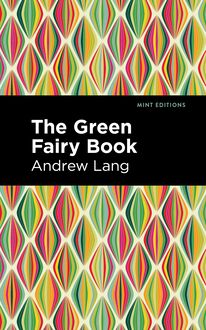
Ebooks
The Green Fairy Book
Andrew Lang


Ebooks
The Grey Fairy Book
Andrew Lang


Ebooks
The Violet Fairy Book
Andrew Lang

Ebooks
Jeunesse - Pour les 6 - 12 ans
The Violet Fairy Book
Andrew Lang
156 pages
English
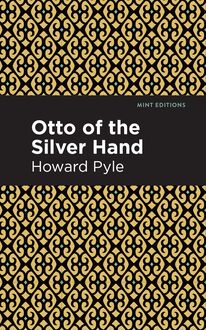
Ebooks
Otto of the Silver Hand
Howard Pyle

Ebooks
Jeunesse - Pour les 6 - 12 ans
Otto of the Silver Hand
Howard Pyle
51 pages
English

Ebooks
The Boy Scout's Book of Campfire Stories
Mint Editions

Ebooks
Littérature érotique
The Boy Scout's Book of Campfire Stories
Mint Editions
107 pages
English

Ebooks
The Golden Boys on the River Drive
L. P. Wyman

Ebooks
Jeunesse - Pour les 6 - 12 ans
The Golden Boys on the River Drive
L. P. Wyman
88 pages
English

Ebooks
The Golden Boys Rescued by Radio
L. P. Wyman

Ebooks
Jeunesse - Pour les 6 - 12 ans
The Golden Boys Rescued by Radio
L. P. Wyman
89 pages
English
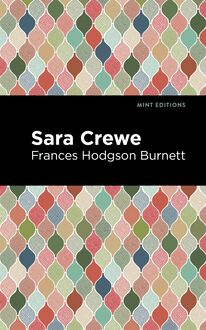
Ebooks
Sara Crewe
Frances Hodgson Burnett

Ebooks
Jeunesse - Pour les 6 - 12 ans
Sara Crewe
Frances Hodgson Burnett
26 pages
English
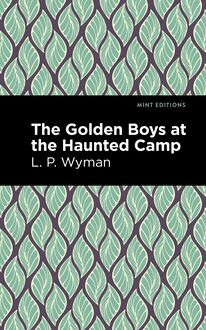
Ebooks
The Golden Boys at the Haunted Camp
L. P. Wyman

Ebooks
Jeunesse - Pour les 6 - 12 ans
The Golden Boys at the Haunted Camp
L. P. Wyman
91 pages
English

Ebooks
A Wonder Book for Girls and Boys
Nathaniel Hawthorne

Ebooks
Jeunesse - Pour les 6 - 12 ans
A Wonder Book for Girls and Boys
Nathaniel Hawthorne
73 pages
English

Ebooks
The Golden Boys With the Lumber Jacks
L. P. Wyman

Ebooks
Jeunesse - Pour les 6 - 12 ans
The Golden Boys With the Lumber Jacks
L. P. Wyman
87 pages
English
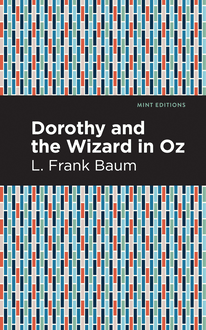
Ebooks
Dorothy and the Wizard in Oz
L. Frank Baum

Ebooks
Jeunesse - Pour les 6 - 12 ans
Dorothy and the Wizard in Oz
L. Frank Baum
75 pages
English
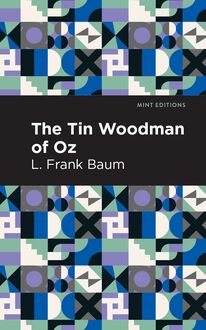
Ebooks
The Tin Woodman of Oz
L. Frank Baum

Ebooks
Jeunesse - Pour les 6 - 12 ans
The Tin Woodman of Oz
L. Frank Baum
81 pages
English

Ebooks
Little Lord Fontleroy
Frances Hodgson Burnett

Ebooks
Jeunesse - Pour les 6 - 12 ans
Little Lord Fontleroy
Frances Hodgson Burnett
87 pages
English
-
 Univers
Univers
-
 Ebooks
Ebooks
-
 Livres audio
Livres audio
-
 Presse
Presse
-
 Podcasts
Podcasts
-
 BD
BD
-
 Documents
Documents
-
Jeunesse
-
Littérature
-
Ressources professionnelles
-
Santé et bien-être
-
Savoirs
-
Education
-
Loisirs et hobbies
-
Art, musique et cinéma
-
Actualité et débat de société
-
Jeunesse
-
Littérature
-
Ressources professionnelles
-
Santé et bien-être
-
Savoirs
-
Education
-
Loisirs et hobbies
-
Art, musique et cinéma
-
Actualité et débat de société
-
Actualités
-
Lifestyle
-
Presse jeunesse
-
Presse professionnelle
-
Pratique
-
Presse sportive
-
Presse internationale
-
Culture & Médias
-
Action et Aventures
-
Science-fiction et Fantasy
-
Société
-
Jeunesse
-
Littérature
-
Ressources professionnelles
-
Santé et bien-être
-
Savoirs
-
Education
-
Loisirs et hobbies
-
Art, musique et cinéma
-
Actualité et débat de société
- Cours
- Révisions
- Ressources pédagogiques
- Sciences de l’éducation
- Manuels scolaires
- Langues
- Travaux de classe
- Annales de BEP
- Etudes supérieures
- Maternelle et primaire
- Fiches de lecture
- Orientation scolaire
- Méthodologie
- Corrigés de devoir
- Annales d’examens et concours
- Annales du bac
- Annales du brevet
- Rapports de stage





